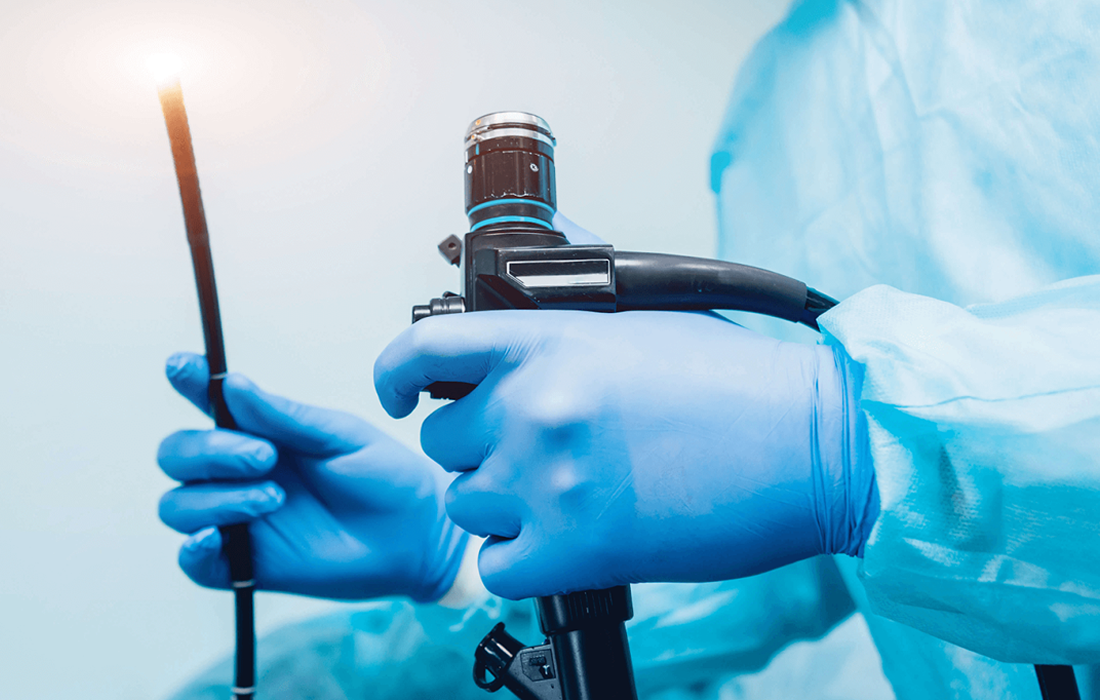Regenerative Medicine News and General Information
AI-Assisted Colonoscopies Could Detect Cancer Sooner
Invasive colorectal cancer is a preventable disease. Early detection through widely applied screening programs is the most important factor in the recent decline of colorectal cancer in developed countries.
Colorectal cancer remains the third most common cancer and third most common cause of cancer-related mortality in US men and women. [25] In addition, rates of colon cancer in younger persons have been increasing.
What are the symptoms?
Colon cancer is now often detected during screening procedures. Other common clinical presentations include the following:
- Iron-deficiency anemia
- Rectal bleeding
- Abdominal pain
- Change in bowel habits
- Intestinal obstruction or perforation
Physical findings may include the following:
- Early disease: Nonspecific findings (fatigue, weight loss) or none at all
- More advanced disease: Abdominal tenderness, macroscopic rectal bleeding, palpable abdominal mass, hepatomegaly.
How is the diagnosis?
The physicians need laboratory and imaging studies to confirm the diagnosis, including complete blood count, chemistry of the liver function, levels of carcinoembryonic antigen (CEA) , among others. There is an imaging test that helps with the diagnosis and to detect the cancer in the first stages, colonoscopy.
Previous research has shown that conventional colonoscopies miss about a quarter of adenomas.
Artificial intelligence (AI) improved the adenoma detection rate during colonoscopies to screen patients without symptoms of colorectal cancer, reports Joseph Sung, MD, PhD, dean of medicine at the Lee Kong Chian School of Medicine, Nanyang Technological University, Singapore.
What are they found in their study?
They administered colonoscopies to 3059 asymptomatic persons aged 45-75 years old were eligible for screening between November 2019 and August 2021. Some had undergone fecal immunochemical tests, but they were offered colonoscopies regardless of those results.
The researchers randomly assigned participants to undergo either AI-assisted or conventional colonoscopies. The computer marked lesions it detected by a blue tracking box on the high-definition monitor of the endoscopy system in real time. The AI algorithm was trained on colonoscopy images from Zhongshan Hospital, affiliated with Xiamen University.
In an intention-to-treat analysis, the adenoma detection rate (ADR) (defined as the proportion of patients with at least one adenoma detected during the colonoscopy) and the mean number of adenomas per colonoscopy (APC) were both significantly higher for the AI group than for the conventional group, 39.9% and 32 % respectively.
The AI-assisted colonoscopies also detected adenomas ≥ 10 mm, adenomas < 5 mm, nonpedunculated adenomas, and adenomas in both the proximal and distal colon at a statistically significant higher rate.
The study makes an important contribution to understanding AI-assisted colonoscopies, and the next step to determine whether it prevents colon cancer. Also it would be important to reduce the cost of AI-assisted colonoscopies to facilitate requests more often in the medical consultation.
Source:
Hong Xu, Raymond S.Y. Tang, Thomas Y.T. Lam, Guijun Zhao, James Y.W. Lau, Yunpeng Liu, Qi Wu, Long Rong, Weiran Xu, Xue Li, Sunny H. Wong, Shuntian Cai, Jing Wang, Guanyi Liu, Tantan Ma, Xiong Liang, Joyce W.Y. Mak, Hongzhi Xu, Peng Yuan, Tingting Cao, Fudong Li, Zhenshi Ye, Zhang Shutian, Joseph J.Y. Sung . Artificial intelligence-assisted colonoscopy for colorectal cancer screening: a multicenter randomized controlled triaL. Medscape. Retrieved from: https://www.cghjournal.org/article/S1542-3565(22)00673-5/pdf
Image:
https://curasia.com/wp-content/uploads/2022/02/colonoscopy-overview.png

